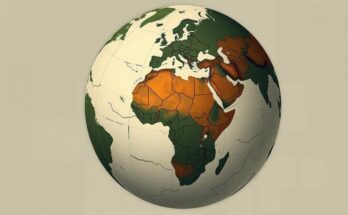Egypt is shifting refugee registration from UNHCR to government control, raising human rights concerns. An EU-funded rescue center in Libya is finally set to open amidst skepticism. The European Ombudsman revealed the Commission withheld human rights inquiry results related to Tunisia. Israel’s parliament banned UNRWA, provoking global condemnation and emphasizing humanitarian crisis vulnerabilities.
In a bold shift, Egypt plans to transition refugees’ registration from the United Nations Refugee Agency (UNHCR) to its own government, stirring apprehension among civil society groups worried about the implications for human rights. This announcement, made at the 2024 Vienna Migration Conference, highlights growing tensions over Egypt’s approach to asylum-seekers amidst ongoing crises, particularly those fleeing violence in Sudan. Reports of arbitrary arrests and collective expulsions of Sudanese refugees raise deep concerns about the safety and legal protections for these individuals in Egypt. Meanwhile, an EU-funded search and rescue (SAR) center in Libya, long mired in delays, is nearing operational status. This center, part of a broader EU strategy, is intended to coordinate maritime rescues but has faced criticism for edging towards the externalization of migration and for potential complicity in the harsh tactics employed by the Libyan coastguard against migrants. As this facility prepares to launch, NGOs continue to express fears about the deteriorating conditions for those attempting to cross the Mediterranean in fragile boats. The European Ombudsman has disclosed troubling information regarding the EU’s migration deal with Tunisia, revealing that the European Commission withheld findings from a human rights inquiry that should have been disclosed prior to the agreement’s signing. This lack of transparency highlights significant governance issues within the EU’s handling of migration matters and raises questions about commitments to uphold human rights in cooperative agreements. Adding to geopolitical tensions, Israel’s parliament approved a ban on the UN Agency for Palestinian Refugees (UNRWA), provoking international outrage. This decision not only endangers crucial humanitarian services but also undermines the agency’s operational capacity in Gaza and the West Bank. Renowned global figures and NGOs have condemned this legislative move, characterizing it as an unprecedented attack on an essential humanitarian institution that supports millions of Palestinians. In a recent statement, EU’s Josep Borrell warned of the severe repercussions of the ban, indicating that its implementation would halt UNRWA’s essential services and revoke its diplomatic privileges within Israel. Similarly, European Council President Charles Michel expressed that such actions are unacceptable and will not go unaddressed by the EU. In light of these developments, advocates urge immediate intervention to protect humanitarian aid operations in the region, emphasizing the irreplaceable role of UNRWA in alleviating the humanitarian crisis.
The article discusses recent developments concerning the European Union’s external partners, particularly focusing on Egypt, Libya, Tunisia, and Israel regarding refugee management and humanitarian rights. With Egypt moving to register refugees independently of UNHCR, concerns are raised about possible human rights violations. Meanwhile, the EU’s effort to establish a rescue center in Libya has been met with skepticism due to previous operational delays and harmful practices directed at migrants. Additionally, the European Ombudsman exposes deficiencies in the EU’s transparency with regards to its agreements with Tunisia, and the Israel’s recent UNRWA ban marks critical humanitarian challenges in the region. These interconnected issues reflect the complex landscape of migration, human rights, and international law in the context of EU external relations.
The unfolding narrative of refugee management and humanitarian rights highlights a precarious balance between government control and international oversight. Egypt’s plans to manage refugee registration raise alarms over human rights, while the long-awaited SAR center in Libya brings both hope and skepticism for migrants. The EU’s lack of transparency in its dealings with Tunisia underscores the need for accountability. Moreover, Israel’s restrictive measures against UNRWA showcase an urgent call for collective action to sustain essential humanitarian services amid increasing geopolitical strains.
Original Source: ecre.org



